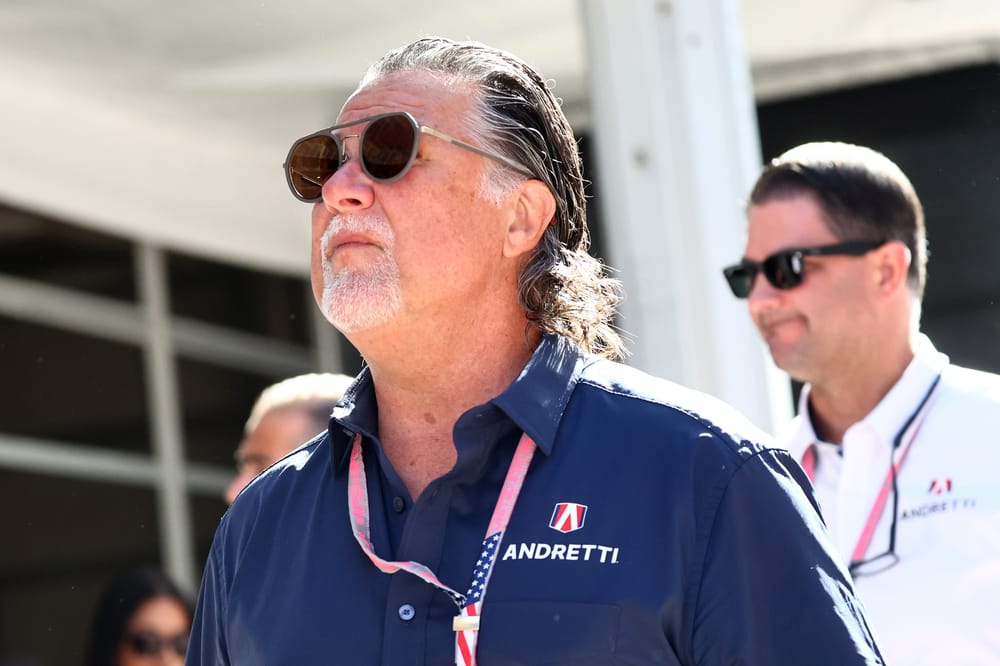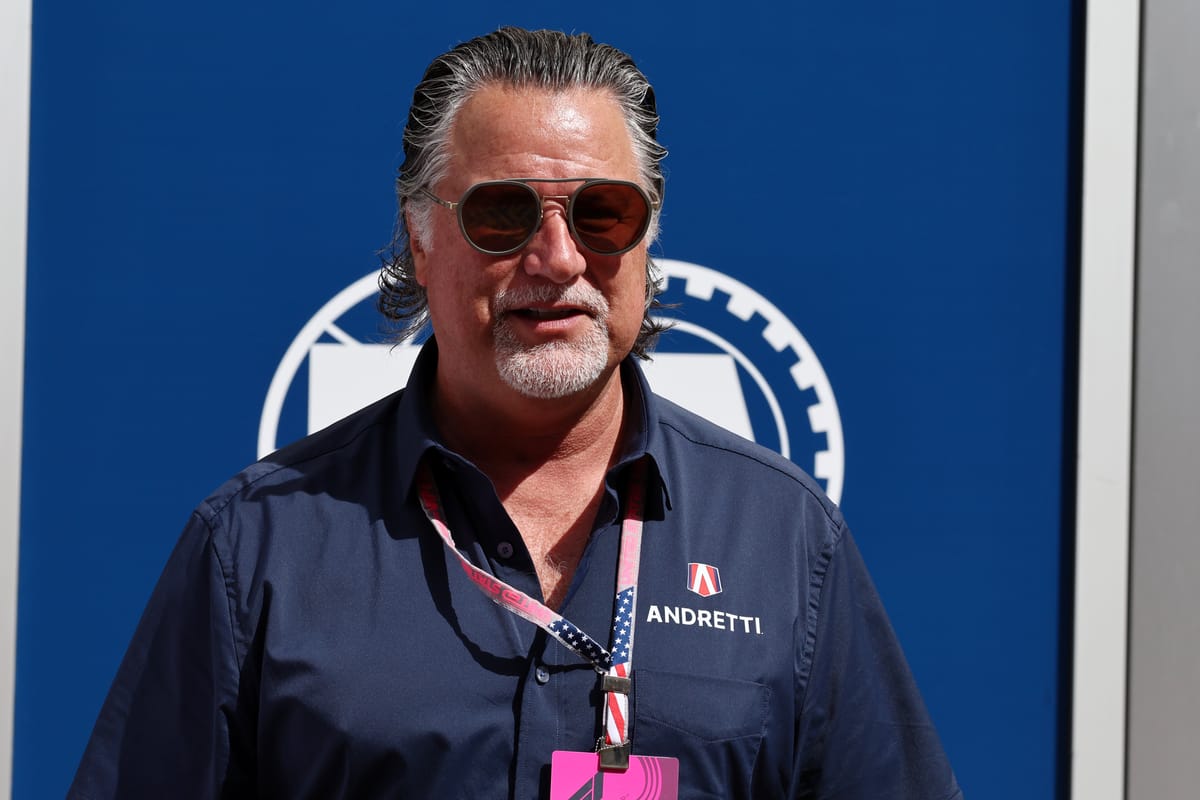Up Next

Formula 1 has rejected the bid for a new General Motors-backed Andretti Global entry, despite the FIA’s prior approval.
F1’s governing body the FIA announced late last year that the entry lodged by Andretti Formula Racing, which would run under the Andretti Cadillac banner, had been given the green light.

But Andretti still needed to clear a major hurdle in the form of gaining F1’s approval too.
This always looked like a tall order as the commercial rights holder had, along with the existing teams, made it clear that there was no appetite to expand the grid.
F1’s emphasis has been on a potential new team proving it would add enough to make it worth the dilution of the prize fund and destabilising the 10-team structure that has been Liberty Media’s priority since taking over F1 ahead of the 2017 season.
I'm devastated. I won't say anything else because I can't find any other words besides devastated. pic.twitter.com/UaFBC5n9qF
— Mario Andretti (@MarioAndretti) January 31, 2024
According to F1, which has conducted an in-depth commercial assessment, Andretti has not proven it would add enough to offset the downsides and potential risks, or proven it would be competitive, and F1 does not believe it should be allowed an entry.
F1 claims that after an initial exchange of information and follow-up questions with Andretti had been completed in October, an invitation for Andretti to present its application in-person was not taken up.
It also believes Andretti’s case would have been stronger with a GM engine supply from the start and notes that attempting to enter as a new constructor in 2025 then build an all-new car for brand new rules in 2026 would have been a significant challenge to overcome - and says there is “no basis” to be admitted in these circumstances, even though Haas did exactly that when it joined the grid in 2016 ahead of the major 2017 aero rule changes.
It is unclear exactly where that leaves Andretti as having FIA approval but no commercial deal with F1 is an unprecedented situation.
Andretti may try to challenge F1’s decision through legal channels or seek to resolve it in private in the hope of rescuing the entry – else it will have to withdraw its plans.
This would be a massive blow for the organisation given it has invested heavily in preparing for its would-be entry including hiring a significant number of staff and working on a 60% model car to the current rules in a windtunnel.
The news that F1 is rejecting Andretti effectively on commercial grounds is unlikely to help tense F1-FIA relations, given it was FIA president Mohammed Ben Sulayem who started this process in early 2023 and who has publicly spoken several times about the merits he sees in the project.
It is also going to be extremely divisive amongst fans as many have voiced their disagreement with F1’s closed shop mentality in this supposed ‘franchise model’ era.
F1's LOGIC FOR REJECTION
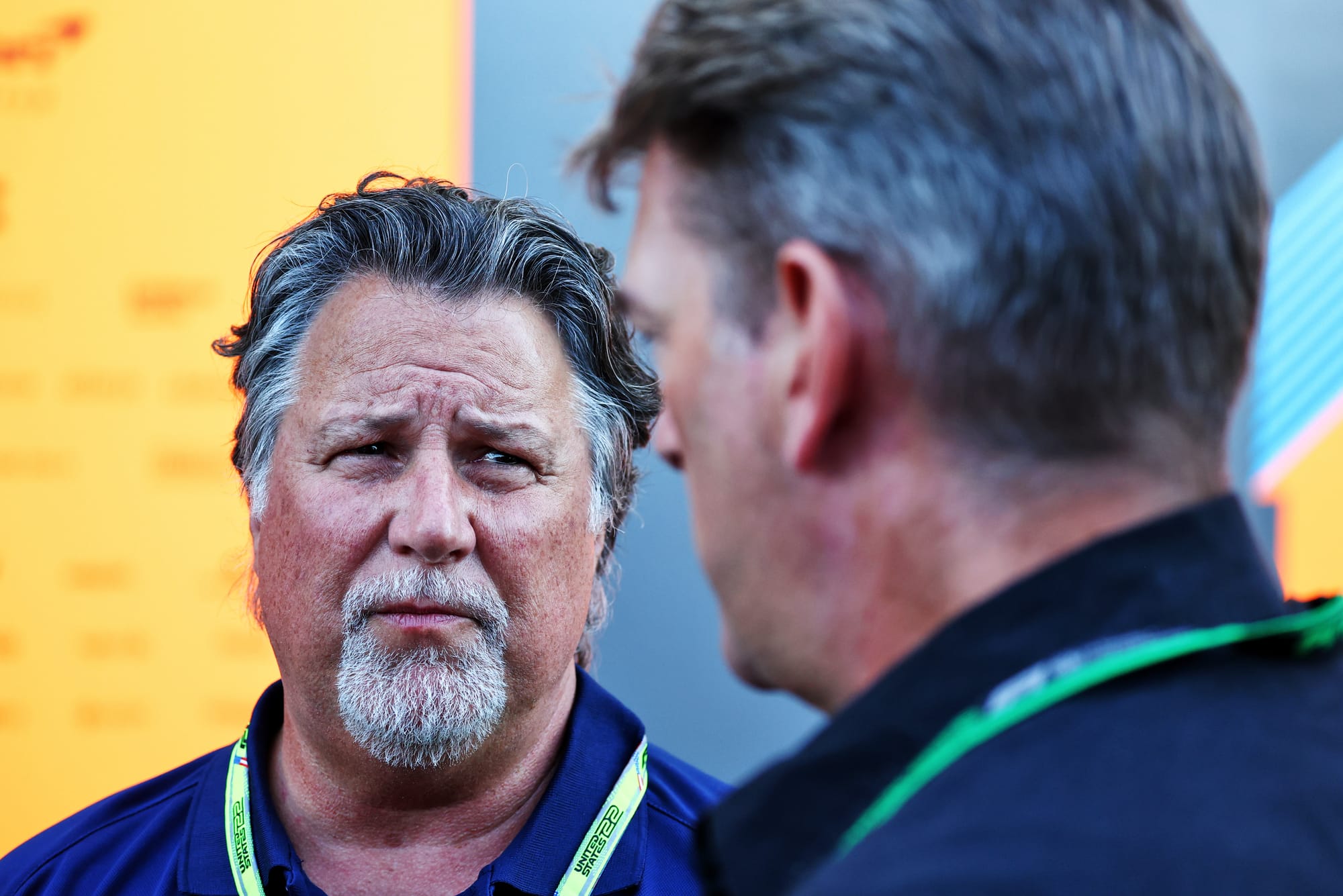
F1’s reasoning for turning Andretti down is emphatic, which it would need to be given the potential for a legal challenge.
Its lengthy list of conclusions culminates in the declaration that Andretti has not shown “that it would add value to the championship” and therefore its application “should not be successful”.
Among the reasons given are an expected lack of competitiveness, the need for a customer engine, and a lack of commercial value.
F1 says that simply expanding the grid does not provide value and the most significant way to do that is “by being competitive”.
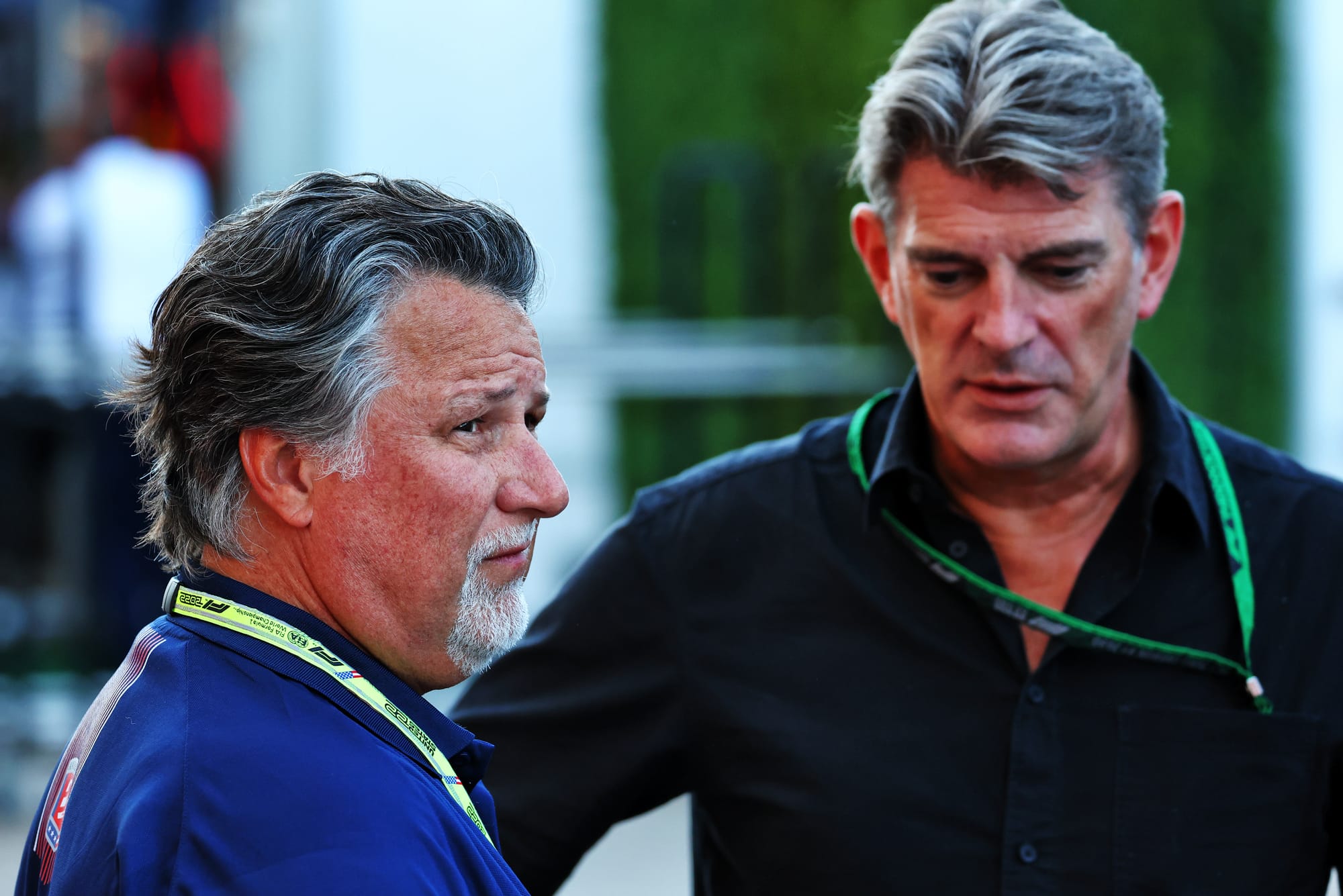
“We do not believe that the applicant would be a competitive participant,” F1 has said.
The need for Andretti to strike a customer engine deal has, somewhat strangely given F1 has several customer teams already, been dismissed as “damaging to the prestige and standing of the championship”.
One of the main perceived benefits to the Andretti bid was the family’s illustrious history, with Michael Andretti – the company and project leader – being an ex-F1 driver and ultra-successful CART driver and the son of 1978 F1 world champion Mario.
The Andretti organisation competes in multiple categories, and won the Formula E world championship last season, but F1 has played down the significance of the name.
F1 says the name “carries some recognition for F1 fans” but claims research indicates “F1 would bring value to the Andretti brand rather than the other way around”.
After a claim last year that some F1 tracks could not support an 11th team, F1 has now officially stated it would “place an operational burden on race promoters, would subject some of them to significant costs, and would reduce the technical, operational and commercial spaces of the other competitors”.
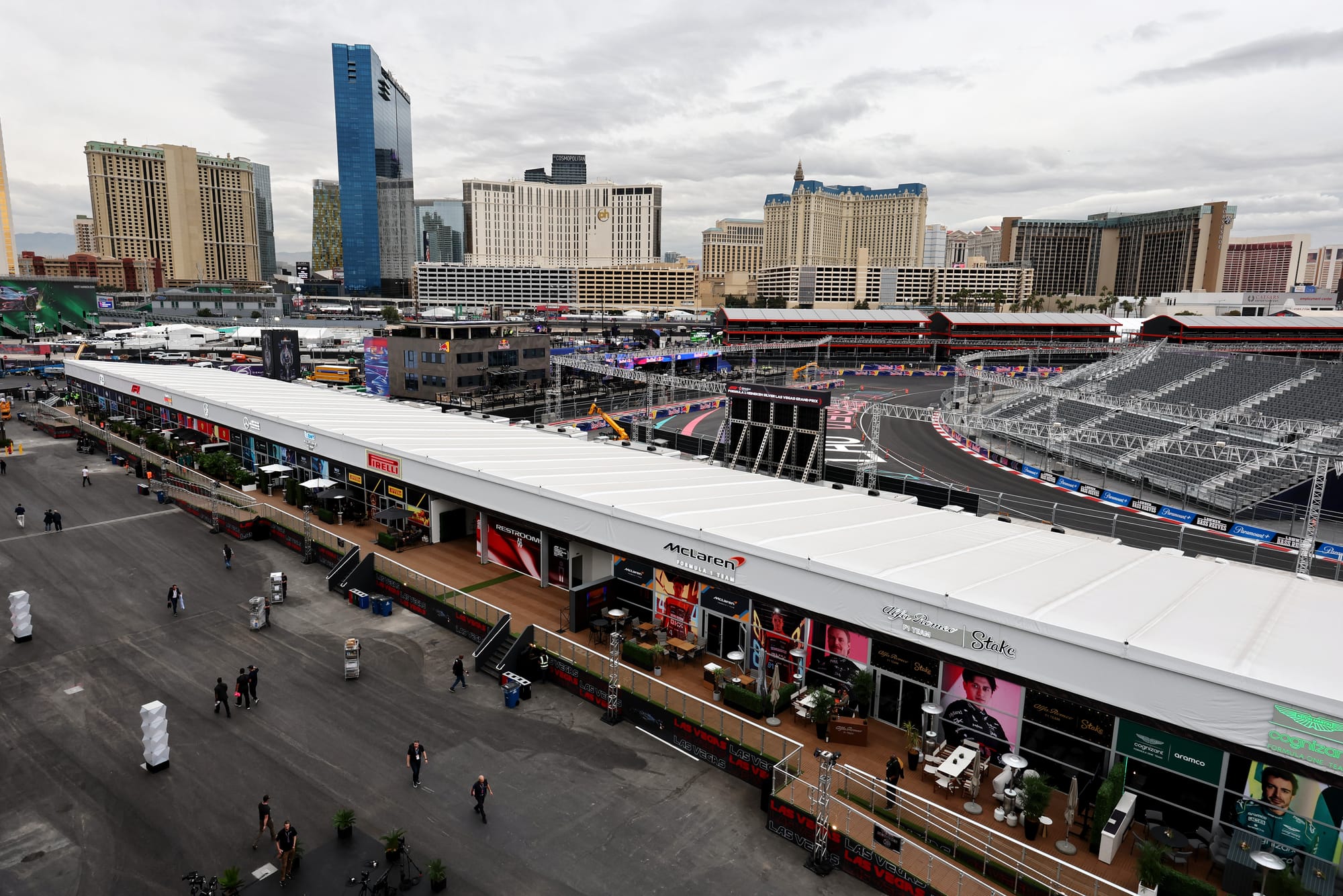
This is despite F1 taking over garages at some tracks for hospitality purposes and, at some events, a garage being devoted to an 11th team of sorts already – the fictional one at the heart of the new Apple F1 film starring Brad Pitt.
Finally, on financial matters, F1 claims it was “not able to identify any material expected positive effect” for the commercial rights holder’s financial results, which it views “as a key indicator of the pure commercial value of the championship”.
HINT OF HOPE FOR 2028?
The only hint of positive for Andretti in this announcement from F1 is the suggestion that a different application for 2028 could end differently.
Late last year, to boost this application, General Motors announced it would build its own F1 engine for 2028 as part of the Andretti project.
This would mean Andretti theoretically only needs a short-term customer engine deal before becoming a fully fledged works team.
F1 has indicated that it “would look differently” on an application under those circumstances.
“In this case there would be additional factors to consider in respect of the value that the applicant would bring to the championship, in particular in respect of bringing a prestigious new OEM to the sport as a PU supplier,” F1 said.
It suggests that Andretti is being indirectly asked to ‘try again’ for 2028.
But, and this is unlikely to be a coincidence, this would almost certainly mean Andretti ends up paying a lot more to enter F1.
There is a so-called anti-dilution fund that any new entrant must pay, to be shared among the existing entrants.
This was added into the most recent Concorde Agreement and exists as a form of short-term compensation for what the current teams would lose financially by sharing their prize money with a new organisation.
But now teams feel like that $200million fee was set too low and want to increase it three-fold.
This would likely be enshrined in the next Concorde Agreement, which an entry for 2028 would fall into – thereby requiring Andretti, or any new team, to pay three times as much than if they were to enter for 2025.


